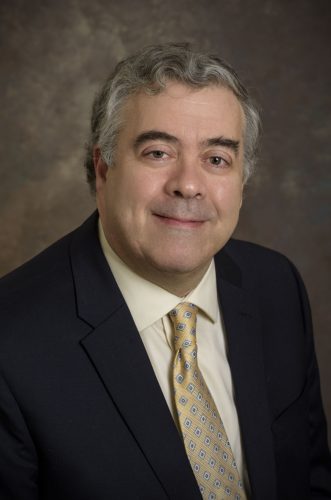Are Science and Religion at Odds? Let’s Ask a Theoretical Physicist.

Stephen Barr, Physics & Astronomy.
It’s an age old question–some would say an age old myth–but let’s be fair in asking it: Are science and religion fundamentally at odds? Well, I suppose that depends on who you ask. But at least one theoretical physicist (enter Stephen Barr) says no–no they most certainly are not. Not only are religion and science not at odds, suggests Barr, but there is deep and important consonance between the two, when each is properly understood.
In this episode:
- Does physics tell us everything we need to know about ourselves, and the world?
- Has physics eliminated the need for God?
- What is the real history of the Catholic Church and its approach to science?
- What about miracles? Don’t miracles violate the laws of physics?
- Do humans really have freewill? Or is everything we do determined by the laws of nature?
- Can theism provide the proper philosophical background for understanding science?
OR, ==> CLICK HERE TO DOWNLOAD THE EPISODE.
About Stephen M Barr
Taken from Wikipedia: Stephen M Barr is an American author and professor in the Department of Physics and Astronomy at the University of Delaware and a member of its Bartol Research Institute. He is also President of the Society of Catholic Scientists. Barr does research in theoretical particle physics and cosmology. In 2011 he was elected Fellow of the American Physical Society, the citation reading “for original contributions to grand unified theories, CP violation, and baryogenesis.” His notable work includes co-discovering the much studied Flipped SU(5) scheme of unification, identifying the Barr-Zee diagram as an important source of electric dipole moment for basic particles such as the electron and neutron in many theories, and proposing the so-called Nelson-Barr mechanism as a solution to the Strong CP problem. He is the author of the article on Grand Unified Theories for the Encyclopedia of Physics.
He obtained his Ph.D. in physics from Princeton University in 1978. Princeton awarded him the Charlotte Elizabeth Proctor Fellowship “for distinguished research.” He went on to do research at the University of Pennsylvania as a post-doctoral fellow (1978–80), the University of Washington as a Research Assistant Professor (1980–85), and Brookhaven National Laboratory as an Associate Scientist (1985–87), before joining the faculty of the University of Delaware in 1987. He was elected Director of the Bartol Research Institute of the University of Delaware in 2011.
Barr writes and lectures frequently on the relation of science and religion. Since 2000 he has served on the Editorial Advisory Board (now the Advisory Council) of the ecumenical religious intellectual journal First Things, in which many of his articles and book reviews have appeared since 1995.[1] His writing has also appeared in Commonweal, National Review, Modern Age, The Public Interest, America, The Wall Street Journal, The Weekly Standard, and other publications. In 2002 he gave the Erasmus Lecture, sponsored by the Institute on Religion and Public Life. In 2007 he was awarded the Benemerenti Medal by Pope Benedict XVI. In 2010 he was elected a member of the Academy of Catholic Theology.
He is married to Kathleen Whitney Barr. They have five children.
Show Notes, Mentioned Resources, and Related Episodes
The Society of Catholic Scientists
Modern Physics and Ancient Faith
Answering Today’s Most Challenging Religious Questions with Fr. Thomas Joseph White
The Pat Flynn Show
If you enjoyed this episode, it would mean the world to me if you could subscribe to, and leave a review for, The Pat Flynn show on iTunes HERE or Stitcher HERE.
Reading your reviews and hearing your feedback is what keeps me fired up to make The Pat Flynn Show happen. Thank you!
Pat. I enjoy how you challenge conventional wisdom on your podcasts. Although I don’t agree with everything discussed on your shows, it’s refreshing to see you bring in different voices to rationally and intelligently (hope that’s not redundant) discuss issues whether it’s fitness, religion, or business. It is a disservice to people of faith and to scientists to argue they are on two different sides and never the twain shall meet. Pat, the only drawback to your podcasts is I’m going to go broke buying all the books you and your guests discuss. Modern Physics and Ancient Faith is yet another one I’m eager to check out.
This podcast just goes to show you that you shouldn’t assume anything when it comes to religion. People tend to think people of faith are close-minded, particularly when it comes to the scientific method and questioning the establishment (hope I don’t sound like a hippie). Personally, I think people of faith should question the world around them and that God doesn’t want mindless robots walking the planet.